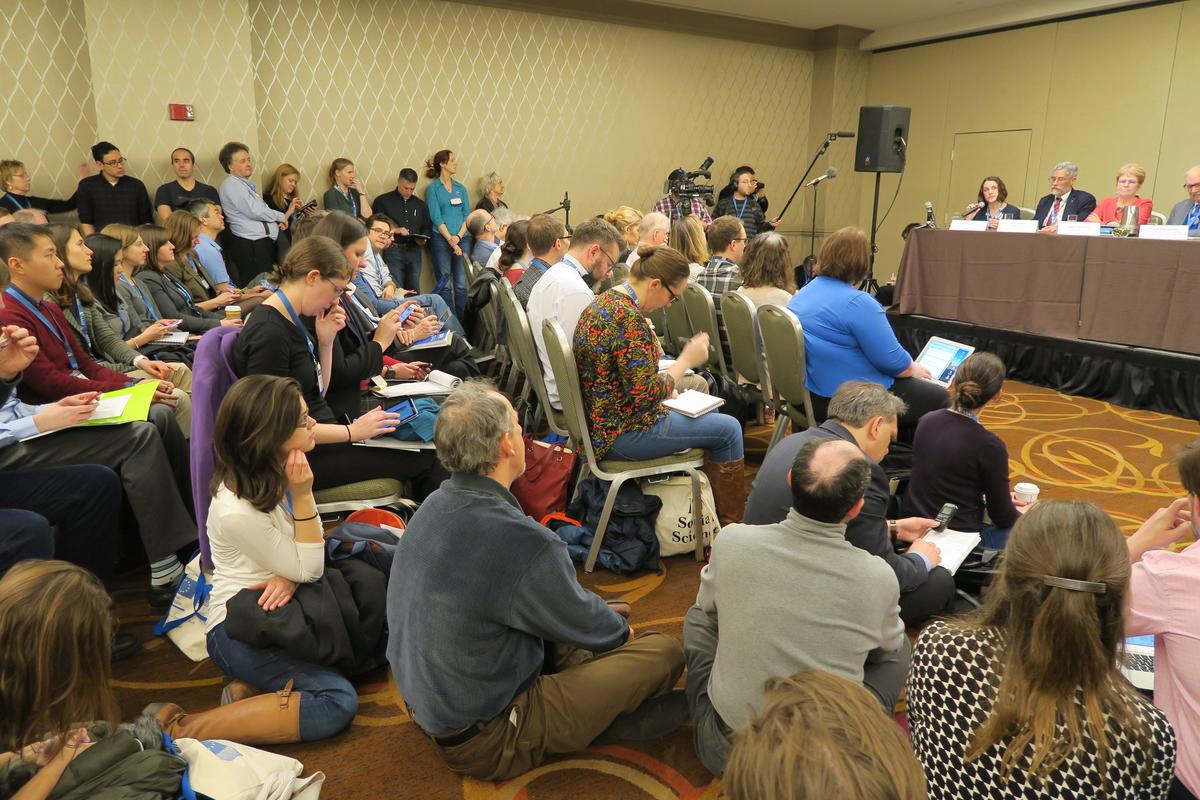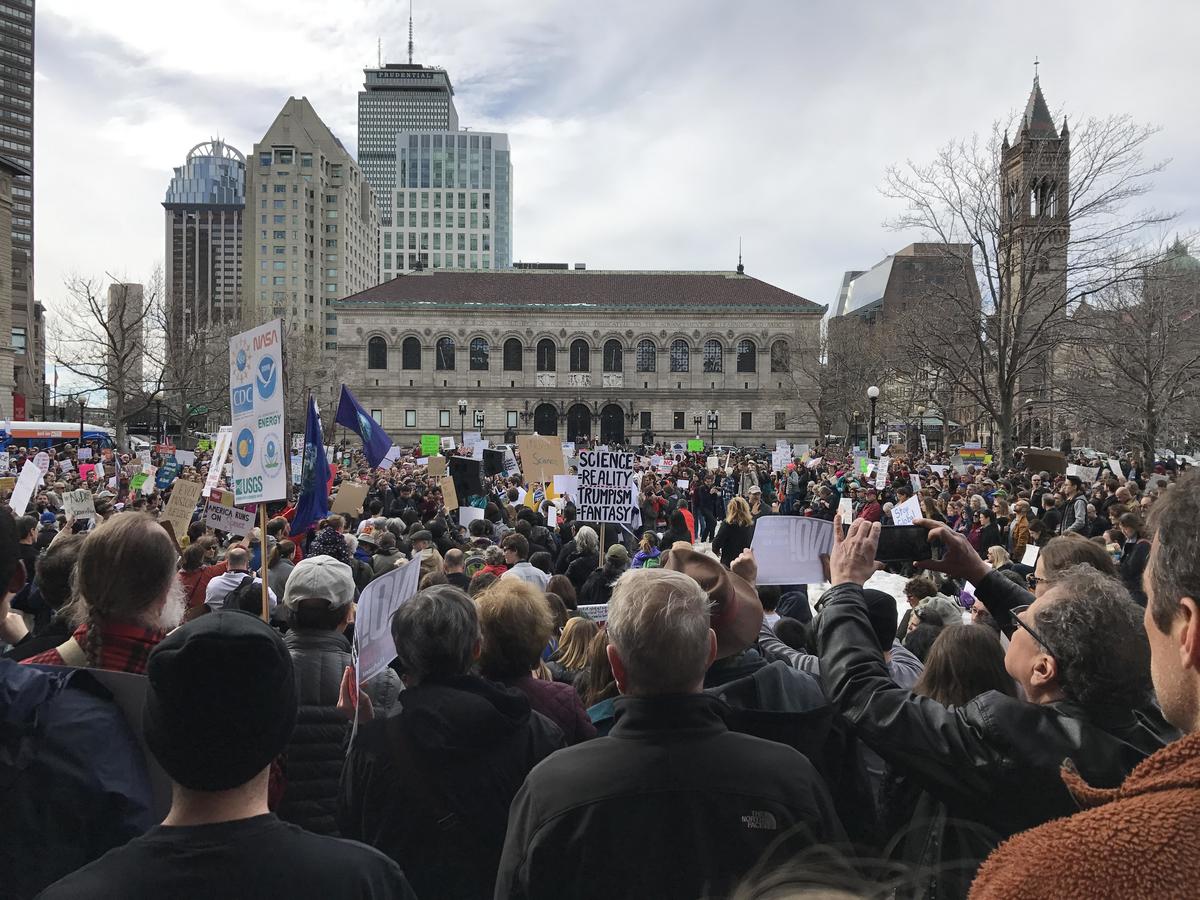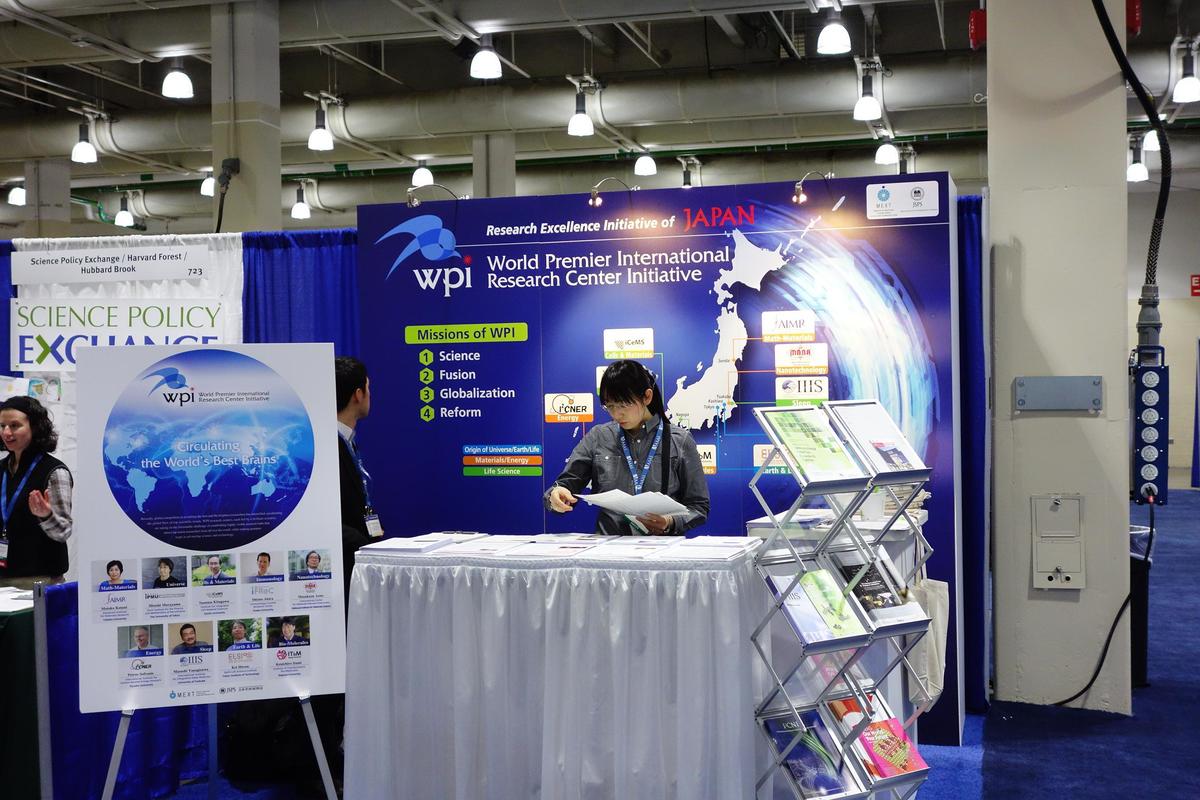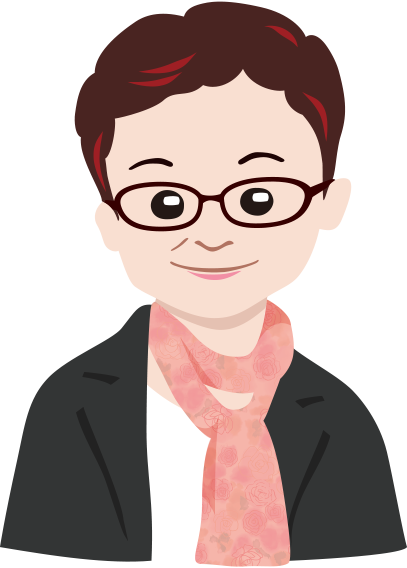March 10, 2017
The Trump Storm and Impacts on Universities
As they say, you have to see it to believe it. We hear a lot about the Trump administration's denial of climate change and negative stance towards science in general. But my mid-February trip to the annual meeting of the American Association for the Advancement of Science (AAAS) in Boston made me truly realize the sense of crisis being felt by American scientists. I attended a hastily-prepared special session entitled "Defending Science and Scientific Integrity in the Age of Trump." It was standing-room-only, and the hallway was filled with others who couldn't get in. The next day, scientists organized a demonstration near the meeting venue, hoisting placards with messages like "Stand Up For Science," and "Protect Science." Something like this is unprecedented.
What most concerns the scientists is the denial of the scientific values of respect for objective evidence, plus restrictions on the free flow of information and people, with potential damage to the entire scientific enterprise. At symposiums and around the meeting, people inevitably reconfirmed the role of science in society and the importance of objective facts as the basis for policy decisions. There was fundamental debate about science--what is needed for the sound progress of science and what are the responsibilities of scientists. In her keynote speech, AAAS chair Barbara A. Schaa also expressed a feeling of concern that the position of science in the world has been eroding over the past ten years or so.
In that context, Japanese universities also have many issues to think about. Plans are being made for large demonstrations this Earth Day, April 22, to highlight the importance of science--in the Washington capital, many other cities around the U.S., and around the world. Japanese research institutions are also being asked to participate. Science is obviously a global enterprise. In this week's column, I leave Meidai to report back from the U.S.
 A big turnout at the AAAS emergency symposium (February 18)
A big turnout at the AAAS emergency symposium (February 18)
The AAAS is the world's largest academic organization dealing with science as a whole. It is headquartered in Washington, and is very well known to scientists as the publisher of the journal Science. Several thousand people typically attend the annual meeting, held at a different venue around the country each year, including scientists, reporters and others not only from the U.S. but also from around the world. The meeting is held over the course of five days including a weekend, with lectures, symposiums, workshops, and other events. The weekend is a time of family-oriented events, and the place is full of life with families present in large numbers. Though "festival" is not part of its official name, the annual meeting is a lively event that makes me want to call it a festival of science.
When I resided in the U.S. I would be sure to go every year, and even after returning to Japan, I would attend as a reporter. But this year, the atmosphere was markedly different. Many people had come for the first time, driven by a sense of crisis, with reportedly over 10,000 participants from more than 60 countries. To open the meeting, Christina Paxson, president of Brown University and chair of the executive committee, got straight to the point: "Now, while this meeting, as always, will celebrate scientific discovery, I know that there will also be much discussion about risks and threats to the scientific enterprise that all of us are concerned about."
The theme of this annual meeting was "Serving Society Through Science Policy." That message resonates very well with the current reality, but actually, it was decided long before the U.S. presidential election in November 2016. Regardless of the election outcome, it may have been a prescient look at the potential to see the first administration change in eight years, but I am certain that no one ever imagined the discussions would be in the kind of context that we are seeing now. From genome editing to artificial intelligence (AI), there were many cutting-edge topics, but it would be no exaggeration to say that invisible main actor was President Trump.
When the U.S. administration changed in past years, the science officials representing the new administration (or the leading candidates during an election was still on) would be given an opportunity to come and speak about science policy. But this time, no one was there from the new administration. Perhaps this was due to the fact that many key science-related posts are still vacant, including not only the president's chief science advisor but also the head of the National Aeronautics and Space Administration (NASA). To be discussing policy without the key players themselves being present was more than unusual, it verged on being bizarre.
 Placards appeal to “Save Science” at a demonstration in Boston (February 19)
Placards appeal to “Save Science” at a demonstration in Boston (February 19)
The details of the administration's science policy are still a mystery, even now. However, there are many causes for concern if we look at the president's executive orders and statements to date.
To begin with, President Trump has indicated his intention to significantly increase military and infrastructure spending, so people expect research-related budgets to be greatly reduced. There are worries that the cuts will target federal budgets and research funds relating to climate change, as well as education-related funding and basic research, the kind that does not lead to immediate applications. And indeed, in March, it was reported that the National Oceanic and Atmospheric Administration (NOAA) would see a 17% cut, including a 26% cut to its research budget. In fact, this organization plays an important role internationally, in the observation of the oceans and atmosphere. A significant cut could have major implications.
The Trump administration has declared global warming to be a hoax and imposed communications restrictions on federal agencies relating to climate change, and the president has signed an executive order restricting the entry of nationals from seven countries including some in the Middle East. Court challenges by some states temporarily reversed that executive order, but by his signing of a new one targeting six countries, it is obvious that there is no change in his basic stance. In her keynote speech, Dr. Schaal (who also happens to be a biologist) articulated her concerns, saying that the free exchange of information and freedom of people to come and go across borders are pillars for the advancement of science; their restriction will weaken science itself, and could cause long-term harm not only to the U.S., but also the global economy and the health of its citizens.
So what is the scientific community doing about this? Dr. Schaal emphasized that world needs to know that science is a public good, that is important for society to understand the role of science, to make our lives more convenient, comfortable, and healthy, and that it plays a role in providing objective facts that can serve as the basis for policy decisions. Many of the speakers talked about the importance of dialogue with citizens.
Through these discussions, what rose again to the top was that science in the U.S. was built by attracting talented people from around the world. The U.S. is the one that receives the greatest benefits from the free movement of people, and it is obvious that a restriction of that movement would reduce the vitality. Universities and academic societies from around the country submitted an open letter protesting the travel restrictions.
The impacts are showing up gradually. Some people have been unable to return to their universities after their visas expired while they visited their home country, and there are more cases of Muslims being hassled due to an increasingly unfriendly atmosphere. There are reports that people are beginning to leave the U.S. It was a similar situation after the September 11 attacks in 2001, when it took a while for things to calm down.
 ITbM from Nagoya University was one of WPI booth exhibitors in the AAAS exhibition hall.
ITbM from Nagoya University was one of WPI booth exhibitors in the AAAS exhibition hall.
For Japan as well it goes without saying how important it is to accept a diversity of people from other countries. Looking at the world, Japan does indeed offer a safe environment for people to study and engage in leading research.
The AAAS meeting also had an exhibition hall where research institutions and universities from America and the world set up display booths. In fact, the Institute of Transformative Bio-Molecules from Nagoya University (ITbM) was there as a member of the World Premier International Research Center Initiative (WPI), which is sponsored by the Japan Society for the Promotion of Science. According to our Designated Assistant Professor Ayako Miyazaki who handled inquiries, as many as 300 people visited the WPI booth with questions about how to get to Japan. "Interest is high. It would be good to have more programs to accept people like that," she said.
Nagoya University is host to ITbM and other research centers that are attracting global attention, and it has a history of exchanges with many Asian countries. It would be wonderful if Meidai were to send a message to the world inviting people to Nagoya, capitalizing on those strengths. Education and research quality will rise if we welcome diverse people from around the world. There are more than a few challenges today, but it is important to think more seriously about what we should do about these challenges as a university, and as a nation. This is an issue of being open and welcoming today, when Japan's presence is being felt less on the world research scene.
I have one final observation from Boston. Women had a very noticeable presence at the forefront of the annual meeting. The president of Brown University who spoke at the opening ceremony is a woman, and so was chair of the AAAS who gave the keynote address. Three persons gave plenary speeches in the large hall, of whom two were women. At the demonstration outside as well, it was largely women who spoke from the microphone to appeal for support for science. In Japan, I would like to see more women speaking on the topic of science. For years it is said that women were not making progress in the U.S., but there has been a significant change in the last decade.

 Subscribe to RSS
Subscribe to RSS